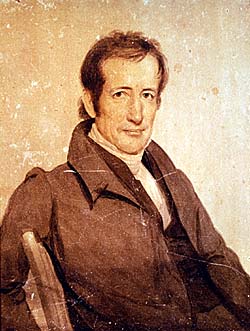Nathaniel Beverley Tucker facts for kids
Nathaniel Beverley Tucker (born September 6, 1784 – died August 26, 1851) was an American writer, judge, and legal expert. He also wrote essays about politics.
A Look at His Life and Politics
Nathaniel Beverley Tucker was often called by his middle name, Beverley. He came from an important family in Virginia. His father, St. George Tucker, was a well-known legal scholar. His half-brother was John Randolph of Roanoke, a famous politician. Beverley's older brother, Henry St. George Tucker, Sr., also had a successful career as a law professor and a member of Congress. His nephew, also named Nathaniel Beverley Tucker, became a diplomat and a secret agent during the American Civil War. His daughter, Cynthia, later became famous for helping to preserve historical places in Virginia.
Beverley Tucker finished his studies at the College of William & Mary in 1801. He then studied law and worked as a lawyer in Virginia. In 1816, he moved with his family to the Missouri territory. There, he served as a circuit court judge from 1817 until 1832. In 1833, he returned to Virginia. He became a Professor of Law at his old college, William & Mary, in 1834 and taught there until he passed away in 1851.
Tucker did not support the nullification movement in South Carolina. This movement argued that states could ignore federal laws they thought were unfair. However, he strongly believed that individual states had the right to leave the United States if they wanted to. From the 1830s, he was known as a "Fire-Eater." This was a group of Southern politicians who pushed for states' rights and for the Southern states to unite. He wrote many articles for magazines like the Southern Literary Messenger. He also wrote many letters to important Southern leaders, including President John Tyler.
Beverley Tucker was also a Freemason, which is a member of a fraternal organization. He helped start the Grand Lodge of Missouri and was its second leader from 1821 to 1824. He died in Winchester, Virginia, when he was 66 years old.
His Novels and Stories
Nathaniel Beverley Tucker is perhaps best known for his novel The Partisan Leader, which he wrote in 1836. The story is set in the United States in 1849. It describes a war between groups of rebels in Virginia and a very powerful federal government led by President Martin Van Buren, who has become a dictator. In Tucker's story, the Southern states that allowed slavery had already left the Union. They did this because Van Buren's government was becoming too strong and had unfair tax policies. Even though Virginia was still under federal control, the book is about how patriotic Virginians try to fight the government and join the independent Southern Confederacy.
When the American Civil War began in 1861, many people in both the North and the South saw this novel as a prediction of what was happening. It was republished that year in New York with a new title: "A Key to the Disunion Conspiracy." The next year, it was republished in Richmond with the title: "A Novel, and an Apocalypse of the Origin and Struggles of the Southern Confederacy."
Tucker also wrote two other novels. One was called George Balcombe, also published in 1836. The famous writer Edgar Allan Poe called it "the best American novel." His third novel, Gertrude, was published in parts in the Southern Literary Messenger between 1844 and 1845.
Other Writings
Besides his novels, Nathaniel Beverley Tucker wrote several other important works:
- Discourse on the Importance of the Study of Political Science as a Branch of Academic Education in the United States (1840)
- Discourse on the Dangers that threaten the Free Institutions of the United States (1841)
- Lectures intended to Prepare the Student for the Study of the Constitution of the United States (1845)
- Principles of Pleading (1846)
He also started writing a book about the life of his half-brother, John Randolph of Roanoke, but he did not finish it. He wrote many essays about politics and other topics. He was a frequent writer for The Southern Literary Messenger in Richmond, Virginia, and the Southern Quarterly Review. He also kept up a large number of letters with scholars and politicians.
 | Janet Taylor Pickett |
 | Synthia Saint James |
 | Howardena Pindell |
 | Faith Ringgold |


